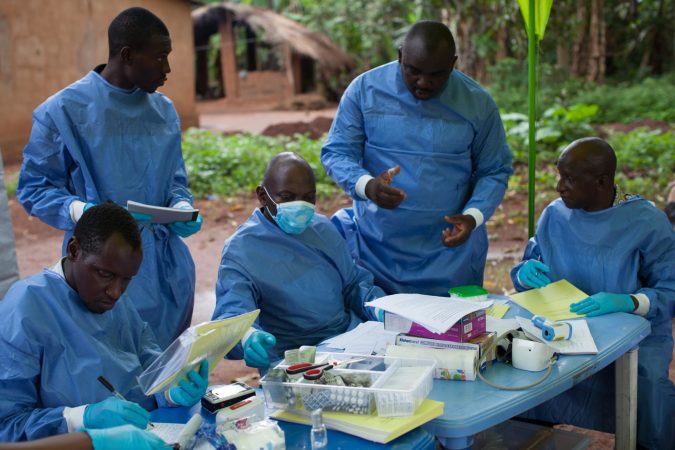

Sweater weather is adding some coziness to everyday pandemic life, along with the ubiquitous pumpkin flavors that come with autumn. At the very least, some of the latest COVID-19 news is promising. We’ve come a long way from where we were a year ago: unvaccinated, exiting a not-quite summer, staring winter in the face. While there’s still some tension surrounding questions of trick-or-treating and indoor Thanksgiving, spooky season in 2021 looks like it will mostly be a fun kind of spooky. But as always, there’s more work to be done.
Pfizer-BioNTech asks FDA to authorize vaccine for children 5 to 11
In an anticipated request that could alter the course of the school year, Pfizer-BioNTech asked the Food and Drug Administration (FDA) to authorize its vaccine for children ages 5 to 11. Promising to move quickly, the FDA has an October 26 meeting on the books to consider it, and will likely announce a ruling between Halloween and Thanksgiving. Children generally suffer less severely from COVID-19-induced illness, but in August nearly 30,000 kids were hospitalized with the Delta variant. This decision is as consequential to parents as it is to children, as the second full school year in the pandemic continues and parents must balance working from home while caring for kids.
Moderna to build vaccine plant in Africa for lower-income nations
Moderna announced Thursday that it will build a manufacturing plant in Africa that will produce 500 million COVID-19 vaccines a year to be donated to lower-income countries. This decision addresses an issue of equitable access to vaccines globally that wealthy countries have been pushing for. The biotech giant still hasn’t chosen a site, and the plant will take two to four years to build.
Booster shots overtake new vaccinations
With Pfizer’s approved booster shots for the immunocompromised and people over 65, a new trend has emerged: more people are receiving booster shots than are receiving their first or second dose of a vaccine. This signals that the unvaccinated are still slower to get their initial shots than the vaccinated are to get their boosters. According to the US Centers for Disease Control (CDC), about 56 percent of the total US population is fully vaccinated, leaving almost 70 million unvaccinated. Tom Frieden, the former head of the CDC, told CNN that this gap creates risk for future waves.
FDA authorizes over-the-counter COVID-19 antigen tests
On Monday, the FDA granted emergency-use authorization for the Flowflex COVID-19 home antigen test from ACON Laboratories. Flowflex joins BinaxNOW as another home antigen test, though compared to PCR tests Flowflex was correct more often than BinaxNOW. The agency anticipates that with this authorization, the capacity of rapid, at-home tests in the US will double over the next several weeks. The manufacturer plans to produce 100 million tests per month by New Year’s, and 200 million per month by February 2022. With more of these tests, people can test themselves more frequently and immediately. This increased availability could mean that more people know sooner if they have the virus, and they can start isolating earlier to stop the spread.
New Zealand surrenders “COVID zero” strategy
After a year and a half of pursuing elimination of the virus in the country, on Monday New Zealand decided to forego this strategy. This choice comes seven weeks into a lockdown that wasn’t stopping the latest outbreak. While the strict measures kept outbreak numbers low, the Delta variant has made this endeavor even more challenging. For much of the pandemic, the country has been able to quash COVID, though Delta ended that era, and forced New Zealand to concede.






















